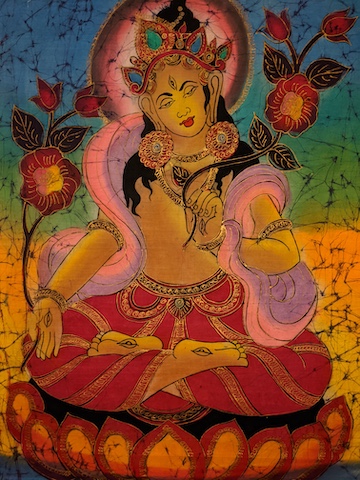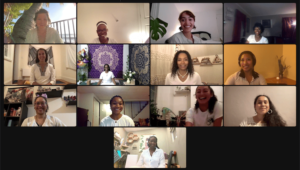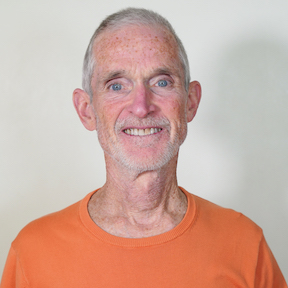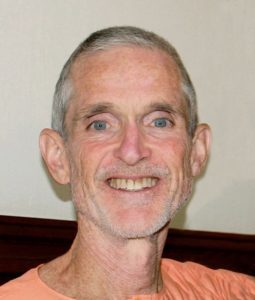Meditation for Mental Purification
by Diana Meltsner
“A person can rise up through the efforts of his own mind; or in the same manner, draw himself down, for each person is his own friend or enemy.”
– Bhagavad Gita, 6.5 chapter The Yoga of Meditation
Yoga offers a method for purification of the body, the energetic field and the mind. Most are familiar with the physical asana practice which conditions the body to make it a better functioning vehicle in our lives. Asanas help develop strength and flexibility. They improve circulation, function of the internal organs and balance the nervous system. Purification of the body and toxin elimination is part of the process. We let go.
Pranayama, breathing practices help to purify the energetic field. This is a more subtle region which is perceived with clarity by only a few. The process usually brings a little level of disturbance that is hard to pinpoint. When continued, pranayama starts to “clear the waters” and we begin to feel lighter and yet grounded. We start to think with clarity.
Mental purification comes indirectly from the practice of these two mentioned methods of yoga. The most direct path is through meditation. Some would say the mind is also purified through other paths like selfless service, prayer or spiritual study and inquiry.
What happens when meditating? We cultivate attentiveness in two forms, concentration and open-awareness state. Practice of concentration creates a one-pointed mind which allows us to stay present with what we choose rather than a mind which is being constantly distracted and tossed around like a leaf in the wind.
On the other hand, the developed broad sense of awareness allows many aspects of our being to coexist; the perception of the body’s sensations, the input from the senses and the mental world of thoughts and emotions.The practice of meditation gives us the ability to move with life while being aware of what is happening within us and around us with clarity. It gives us an opportunity to stay focused on what is important to us, what gives our life meaning.
What is this mental purification process in meditation? As we meditate, we direct our attention to a chosen point generating positive and steady vibrational states. The ancient yogic text, The Yoga Sutras of Patanjali, recommends focusing on something that is uplifting. As we focus, the mind comes in with stories and narratives. Such thoughts distract us. As soon as we realize it, we recover our point of focus. We do this over and over again. In this process, the mind starts releasing echoes of old emotions and thought patterns. Some meditations can be very relaxing, soothing, even blissful, and some will expose our unconscious mental tendencies which can be startling to us and unpleasant. We let them out and let them be.
Just as detoxification of the body brings a bad taste to the mouth and perhaps some body odor, as we start purifying the mind, there is debris of the old, which we need to release. We also get a view of our current mental patterns. We expose fears and discontents and recognize how they affect our life. We learn to accept them and let them go.
Our developed one-pointed mind allows us to stay focused, and the broad, all encompassing awareness helps us to find clarity of the big picture. It is from this place of clarity that we have a choice to cultivate new mental tendencies, such as joy, wonder, compassion and tranquility. We invite these positive emotional states to accompany us in life.
Tara symbolizes pure compassion and is believed to possess the ability to guide followers, like a star, on their spiritual path.
Please join Diana for her upcoming workshop Cultivating 4 Keys to Peace, 7-day Meditation and Raja Yoga online, May 20-26, 7:15-8:00am PT.
Diana also leads a weekly Guided Meditation online every Sunday, 5:30-6:00pm PT
and will be co-leading our Meditation Teacher Training online with Swami Ramananda this fall, which is an in-depth study of meditation.







